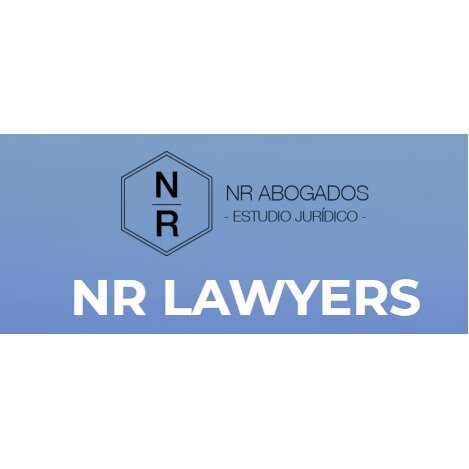Best Energy, Environment & ESG Lawyers in Argentina
Share your needs with us, get contacted by law firms.
Free. Takes 2 min.
Or refine your search by selecting a city:
List of the best lawyers in Argentina
About Energy, Environment & ESG Law in Argentina
Energy, Environment & ESG (Environmental, Social, and Governance) law in Argentina represents a comprehensive area that covers legal frameworks governing the production and use of energy, environmental protection, and standards around responsible business conduct. Argentina has a diverse energy sector, with growing emphasis on renewable energy alongside traditional oil and gas resources. Environmental regulations aim to protect natural resources, air and water quality, and biodiversity. ESG principles have gained importance as companies and investors focus more on sustainable and responsible practices. Understanding this evolving landscape is essential for individuals, businesses, and investors operating in Argentina.
Why You May Need a Lawyer
Legal assistance in Energy, Environment & ESG matters can be crucial for a variety of situations in Argentina, such as:
- Compliance with complex environmental regulations during business operations or new projects
- Advice on renewable energy contracts, licensing, and government incentives
- Defending against enforcement actions or fines from environmental authorities
- Guidance on sustainable business practices and ESG reporting obligations
- Environmental risk assessment and due diligence for property transactions
- Resolving disputes related to pollution, land use, or natural resources
- Structuring investments in accordance with local ESG standards
- Managing community and stakeholder relations impacted by energy projects
Given the complexity and frequent updates in Argentine law, having an experienced lawyer can help protect your interests and avoid costly mistakes.
Local Laws Overview
Argentina’s legal framework for Energy, Environment & ESG is shaped by national, provincial, and sometimes municipal laws. Key aspects of these laws include:
- Energy Laws: Oversight of the oil and gas sector is provided by the Hydrocarbons Law, while the Renewable Energy Law (No. 27.191) sets targets and incentives to increase clean energy output. There are specific rules for electricity generation, distribution, and transmission managed by regulatory bodies such as ENRE and CAMMESA.
- Environmental Regulations: Environmental protection is enshrined in the Argentine Constitution and detailed in laws such as the General Environmental Law (No. 25.675), Hazardous Waste Law (No. 24.051), and Water Resources Law. Environmental impact assessment (EIA) is mandatory for new projects.
- ESG Standards: While ESG is not a single law, various regulations address social responsibility, anti-corruption, and transparency. Publicly listed companies must adhere to specific corporate governance standards set by the National Securities Commission (CNV).
There are also important provincial and local laws that may impose additional requirements or restrictions, depending on the location and nature of your activities.
Frequently Asked Questions
What is an environmental impact assessment (EIA) in Argentina?
An EIA is a mandatory process that evaluates the environmental consequences of proposed projects or activities, such as energy developments, before they are approved and allowed to proceed. It is required by federal and provincial laws and must be submitted to the relevant authorities for their assessment.
How can renewable energy projects benefit from government incentives?
Argentina offers tax benefits, preferential financing, and guarantees for investment in renewable energy through programs like RenovAr. Local production of components and employment generation are particularly encouraged.
Who regulates the energy sector in Argentina?
The energy sector is regulated by national bodies such as the Ministry of Economy’s Energy Secretariat, ENRE (for electricity), and ENARGAS (for natural gas), along with provincial authorities.
What are the main environmental obligations for companies in Argentina?
Companies must comply with waste management, air and water emissions standards, obtain environmental permits, and complete regular reporting. Compliance with provincial laws and local ordinances is also necessary.
Is environmental liability strict in Argentina?
Yes, under national law, environmental liability is strict. This means a party can be held responsible for environmental damage regardless of fault, and must remediate or pay for remediation.
How do ESG criteria affect businesses in Argentina?
Increasingly, investors and regulators require companies to demonstrate good practices in environmental sustainability, social responsibility, and governance. This can affect access to capital, reputation, and compliance obligations.
Can communities challenge energy or infrastructure projects?
Yes, local communities and non-governmental organizations can participate in public hearings and may challenge projects in court if they believe environmental or procedural rights are disregarded.
What should foreign investors know about energy and environmental law?
Foreign investors must comply with the same environmental and energy regulations as local entities, including provincial laws. Legal due diligence is essential to identify obligations and potential liabilities.
Are there penalties for non-compliance with environmental laws?
Yes, non-compliance can result in administrative fines, orders to cease operations, remediation obligations, and even criminal charges in severe cases.
How does climate change regulation impact business in Argentina?
Argentina has committed to reducing greenhouse gas emissions under international agreements and has national policies addressing climate change adaptation and mitigation. Businesses, especially in energy and industry, may be subject to carbon reporting, emission reduction targets, and participation in sustainability initiatives.
Additional Resources
Several resources and organizations can assist individuals and businesses interested in Energy, Environment & ESG in Argentina:
- Ministry of Environment and Sustainable Development (Ministerio de Ambiente y Desarrollo Sostenible) - oversees environmental policy and regulations
- Energy Secretariat (Secretaría de Energía) - provides information on energy policy and licensing
- National Institute of Industrial Technology (INTI) - offers assistance and certification in sustainable technologies
- National Securities Commission (CNV) - sets ESG and governance standards for listed companies
- Environmental NGOs and chambers of commerce, such as Fundación Vida Silvestre and Cámara Argentina de Energías Renovables (CADER)
- Law faculties at major universities with specialized environmental and energy law programs
Next Steps
If you have concerns or interests related to Energy, Environment & ESG in Argentina, take the following steps:
- Gather all available documentation and details about your situation or project
- Research applicable local, provincial, and national regulations that may apply
- Contact a lawyer or legal advisor with experience in Energy, Environment, and ESG matters to discuss your needs
- Consult official government agencies or reputable organizations for further guidance
- Prepare questions about compliance, risk management, or investment considerations specific to your case
- Schedule a legal consultation to map out the next steps and ensure proper compliance with all relevant obligations
Proactive legal guidance can help you avoid pitfalls, manage risks, and achieve your objectives efficiently in Argentina’s dynamic Energy, Environment & ESG landscape.
Lawzana helps you find the best lawyers and law firms in Argentina through a curated and pre-screened list of qualified legal professionals. Our platform offers rankings and detailed profiles of attorneys and law firms, allowing you to compare based on practice areas, including Energy, Environment & ESG, experience, and client feedback.
Each profile includes a description of the firm's areas of practice, client reviews, team members and partners, year of establishment, spoken languages, office locations, contact information, social media presence, and any published articles or resources. Most firms on our platform speak English and are experienced in both local and international legal matters.
Get a quote from top-rated law firms in Argentina — quickly, securely, and without unnecessary hassle.
Disclaimer:
The information provided on this page is for general informational purposes only and does not constitute legal advice. While we strive to ensure the accuracy and relevance of the content, legal information may change over time, and interpretations of the law can vary. You should always consult with a qualified legal professional for advice specific to your situation.
We disclaim all liability for actions taken or not taken based on the content of this page. If you believe any information is incorrect or outdated, please contact us, and we will review and update it where appropriate.
Browse energy, environment & esg law firms by service in Argentina
Argentina Attorneys in related practice areas.
Browse energy, environment & esg law firms by city in Argentina
Refine your search by selecting a city.
















